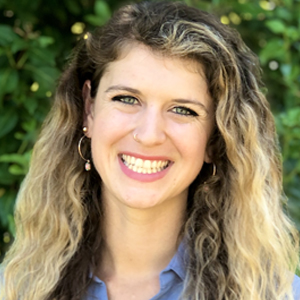
Finding ways to help through research and teaching
“As an African, as a Ghanian, I care about the issues facing us and about trying to come up with better ways to solve them, to find better ways of helping people.”
Richmond Ateko works remotely as an assistant lecturer at the University of Ghana, based in Greater Accra, where he completed his master’s degree in chemical pathology, and simultaneously is completing his Ph.D. in chemical pathology at the University of Cape Town in South Africa.

type 3 in Ghana.
With a science teacher for a dad, Ateko grew up in a scientific environment. “From an early age, it was science for me — math, English, and the sciences,” he said.
His parents wanted him to become a medical doctor, but after high school, his grades didn’t quite qualify him to pursue medicine. Instead, he was put on a biochemistry track.
“Now I know that I wouldn’t have enjoyed pure medicine because I find that I thrive better in the health sciences or biomedical research,” Ateko said. “I just had to find my way along the line.”
In addition to the pandemic exacerbating research and teaching difficulties, West Africa faces hurdles that are common on the continent, including difficulty obtaining equipment, funding and visas to attend international research conferences, Ateko said. “This limits the scope and how far we can go when it comes to research.”
Research funding mostly comes from private sources, he added. Some scientists are fortunate enough to get grants from private institutions, but there’s not much government funding for research.
During his undergraduate and master’s-level research, Ateko was focused on diabetes. He learned that for most diabetic patients he met in Ghana, the drugs they needed were quite expensive. His research team was looking for an alternative medication that would be cheaper, safer and more readily available. After some initial research success, however, they were unable to continue due to lack of funds.
“That is the problem,” he said. “Sometimes we carry out research, but it ends up on the shelf.”
In his Ph.D. work, Ateko now studies the prevalence of hyperlipidemia type 3 in Ghana. Similar research has been done in South Africa, but researchers do not know how common the disease is in Ghana. This inherited condition disrupts the breakdown of fats and results in a buildup of large amounts of ultra low-density lipoproteins in the body. Ateko’s research interests are rooted in trying to find effective and accessible diagnosis and treatment options for incurable diseases.
In addition to his research, Ateko is passionate about teaching, which he has been doing since 2005, when he completed his B.S. in biochemistry. He’s proud that over the years, many of his students have gone on to become medical doctors and engineers or to pursue Ph.D.s all around the globe. But for him, it’s important to stay close to his community.
After finishing his Ph.D., Ateko plans to continue his teaching and research. “If I get a chance to travel outside, it would be good, but I will always want to come back home because we need people to help the community,” he said. “I want to stay behind and help.”
Enjoy reading ASBMB Today?
Become a member to receive the print edition four times a year and the digital edition monthly.
Learn moreFeatured jobs
from the ASBMB career center
Get the latest from ASBMB Today
Enter your email address, and we’ll send you a weekly email with recent articles, interviews and more.
Latest in People
People highlights or most popular articles

From humble beginnings to unlocking lysosomal secrets
Monther Abu–Remaileh will receive the ASBMB’s 2026 Walter A. Shaw Young Investigator Award in Lipid Research at the ASBMB Annual Meeting, March 7-10 in Washington, D.C.

Chemistry meets biology to thwart parasites
Margaret Phillips will receive the Alice and C. C. Wang Award in Molecular Parasitology at the ASBMB Annual Meeting, March 7-10 in Washington, D.C.

ASBMB announces 2026 JBC/Tabor awardees
The seven awardees are first authors of outstanding papers published in 2025 in the Journal of Biological Chemistry.

Decoding how bacteria flip host’s molecular switches
Kim Orth will receive the Earl and Thressa Stadtman Distinguished Scientists Award at the ASBMB Annual Meeting, March 7–10, just outside of Washington, D.C.

Thiam elected to EMBO
He was recognized during the EMBO Members’ Meeting in Heidelberg, Germany, in October.

The timekeepers of proteostasis
Learn about the cover of the winter 2026 ASBMB Today issue, illustrated by ASBMB member Megan Mitchem.

